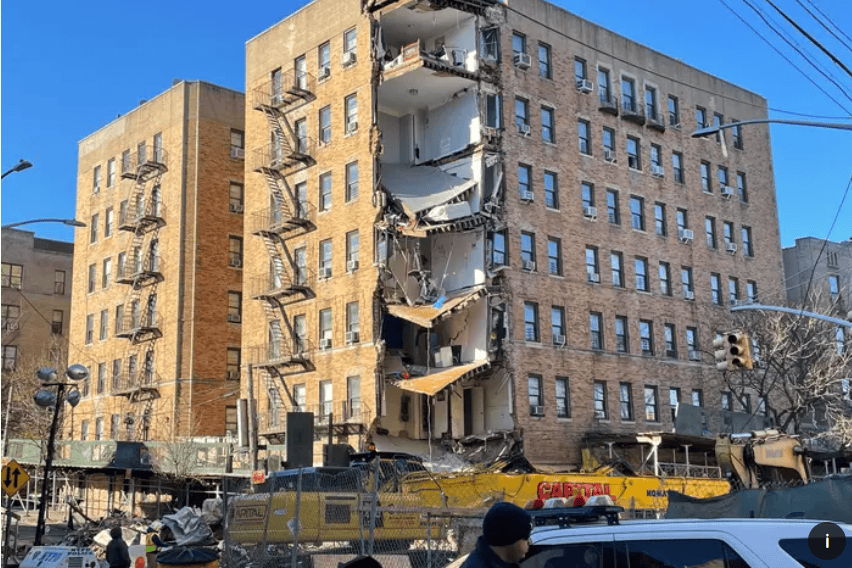Following two devastating collapses last year, the New York City Council passed a bill requiring “proactive” inspections for high-risk buildings.

New York City Gets More Aggressive About Building Inspections
A bill requiring “proactive” inspections for high-risk New York buildings was passed by the City Council on Thursday, following two devastating collapses last year that underscored the wider issues plaguing older structures.
The “Billingsley Terrace Structural Integrity Act” requires the Department of Buildings to create a “proactive inspection program” to identify potentially dangerous buildings using predictive technology.
The agency would analyze information including a building’s age, history of violations and 311 complaints. If a corrective action plan is issued, the department would carry out inspections and issue violations if landlords fail to comply.
New York City has more than 1 million buildings, most of which predate 1960.
The act was first announced in April by Councilwoman Pierina Sanchez, whose district includes 1915 Billingsley Terrace in Morris Heights. The corner of the nearly century-old apartment building collapsed in December, displacing over 100 residents. There were, miraculously, no deaths or serious injuries.
Paying Too Much For Insurance?
Get a FREE quote to insure your rental properties for less.
The same could not be said for the tragic garage collapse at 57 Ann St. in lower Manhattan in April 2023, when one person was killed one and five others were injured. Both incidents were cited as inspiration for the legislation.
The Billingsley address had a history of neglect and more than 100 building violations before it collapsed. The city subsequently opened a criminal investigation into the collapse and suspended an engineer who allegedly misidentified a support beam. One of the factors the inspection program will weigh is the disciplinary history of a building’s contractors and licensees.
Sanchez, a Democrat, said the two tragedies “highlighted the need to ensure our buildings are stable and habitable and address deficiencies at the Department of Buildings.”
“[This bill] was born of the question, what more should our agencies have done to prevent this tragedy? There were glaring warning signs here, and tenants and New Yorkers alike were left asking, what did New York City do with this information?” Sanchez said at a Council Housing Committee meeting on Thursday.
“We should not only rely on reactive approaches when we have so much information available to us as a city to enforce.”
Buildings Commissioner Jimmy Oddo characterized the legislation as the DOB going “on the offense” against “bad actors” before tragedy strikes — a shift from its history as a reactive body called to respond to incidents and complaints after the fact.
“Too many times, we have seen careless property owners fail to keep their buildings safe and neglect their responsibilities,” he said in a statement. “The creation of a proactive building inspection program will be transformative.”
Mayor Adams’ administration has earmarked $4.7 million for the new inspection program. The bill is set to take effect 180 days after becoming law.
Source: Governing















 Accessibility
Accessibility